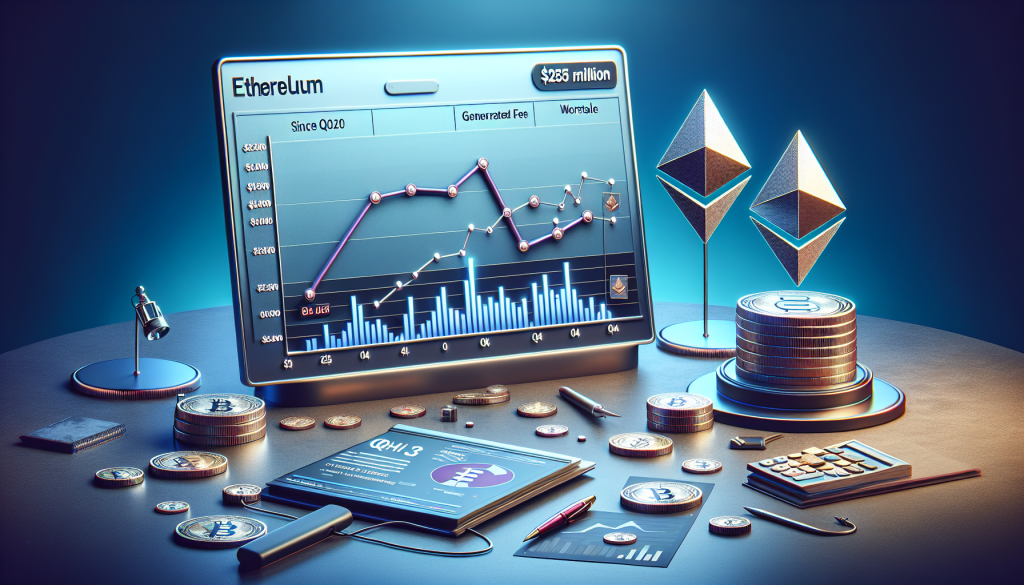Key Points
Ethereum’s Dipping Network Fees
The DeFi Report has recently analyzed Ethereum’s network fees.
In Q3-2024, these fees amounted to $261 million.
This is a 47% decrease compared to the previous quarter.
It’s also the lowest the network has seen since Q4 of 2020.
The report, titled “The ETH Report: Q3-24”, was published on October 16.
It showed that Ethereum’s layer 1 fees in Q3-2024 were the lowest since 2020.
The DeFi Report attributes this to the growth of layer 2 networks.
The introduction of EIP 4844 also played a part.
Additionally, there was a decrease in new crypto users in Q3.
The report also revealed information about Ethereum’s Total Value Locked.
It dropped 14% in the quarter.
However, it was up 133% over the last year.
The Ethereum token itself was down 21% this quarter.
More tokens were issued than burned on the network.
The DeFi Report made predictions in their analysis.
They foresaw the dip in Ethereum’s fees.
This was due to the EIP4844 update and the introduction of Celestia.
Celestia is a modular data availability network.
New cheaper data availability networks also emerged.
Uniswap Labs’ new layer 2 solution, Unichain, was also launched.
This could cause further loss to Ethereum.
The DeFi Report commented on this in their latest analysis.
“Fees are down. Inflation is up. Uniswap is now building their own L2,” they said.
Michael Nadeau, founder of DeFi Report, offered a perspective.
He suggested Ethereum validators could increase transactions and burn more tokens.
This could be achieved by driving down fees.
It could boost token demand and bring in more profit for the network.
Nadeau also made a comment earlier this week.
He suggested Ethereum validators and token holders could lose around $368 million.
This would be due to settlement fees paid by Uniswap with the launch of Unichain.
Instead, the funds would go to Uniswap Labs and possibly Uniswap token holders.
ETH token holders could also suffer losses.
This would be due to the protocol burning less ETH.
Settlement fees would also go to UNI token holders instead.
